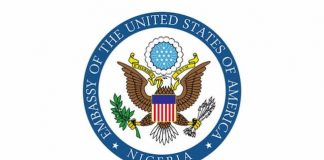The recent communication blackouts in Katsina and Zamfara states have been critised by the Socio-Economic Rights and Accountability Project (SERAP), which, it says, points to the “shrinking civil space” in the country.
SERAP, in a letter dated 11 September 2021, signed by its Deputy Director Kolawole Oluwadare, made its stance known.
Last week, reports floated in the media that due to enduring banditry in the country, the Nigerian Communications Commission (NCC), had ordered the cutting off of communications in 13 Local Government Areas in Katsina State; a report the commission promptly denied.
A similar event took place in Zamfara State eight days prior, when the NCC directed that communications be cut off in the whole state.
SERAP called on President Muhammadu Buhari to direct the commission and the Minister of Communication and Digital Economy, Isa Pantami, to “immediately reverse the apparently unjustified suspension of internet and telecommunication networks in Zamfara State, and 13 local government areas of Katsina State.”
It added that the directive from the commission did not have any legal basis and was “inconsistent with the principles of necessity and proportionality. The suspension is a form of collective punishment of Nigerians resident in these states.”
It described the situation as “egregious”, stating that the incident mirrored the current trend in the country that reinforced the shrinking of “civil space” in the country.
READ ALSO: CBN Threatens To Suspend FX Operational Licence Of Erring Banks
It noted that “Shutdowns should never become an entrenched practice in the country”.
“While the authorities have a legal responsibility to protect, ensure and secure the rights to life and property, any such responsibility ought to be discharged in conformity with constitutional and international human rights standards.”
It linked the action to negative effects on human rights and economic activities “public safety and emergency services that outweigh the purported benefits.
“The suspension has the potential to affect millions of internet and telecommunication users in these states, and those on the margins of society are most impacted by it.
“The suspension of internet and telecommunication networks in Zamfara and Katsina states fails to meet the requirements of legality, necessity and proportionality.
“The requirement of necessity also implies an assessment of the proportionality of restrictions such as the telecoms blackout in these states, with the aim of ensuring that restrictions target a specific objective and do not unduly intrude upon human rights.”













